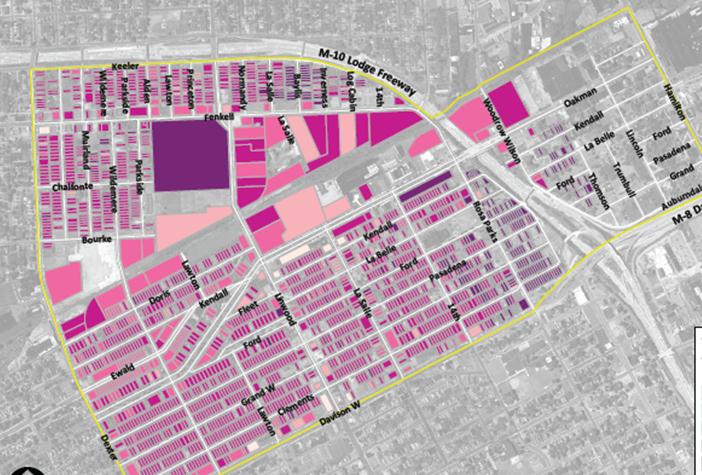|
Professor of Economics CURRENT RESEARCH PROJECTS Project #1 : Unraveling the Past: Fordism and Flexibility at Ford Motor Project #2: Alternative Economic Models for Local and Regional Development Project #3: The Gendered Construction of Economic Knowledge |
|
Unraveling the Past: Fordism and Flexibility at Ford Motor |
I am writing a book on the spatial, political economic and, cultural effects of the Ford Motor Company's village industry program initiated in the 1910's and 1920's and lasting through the 1940's. Utilizing primary source historical documents and empirical data covering wages, gender, marital status and other variables I am analyzing the determinants of the decision to spatially decentralize production activities at Ford Motor during the era normally associated with scale economies and vertical integration typical of "Fordist" mass production.
The village industries represented a heterogeneous
set of small firms employing a range of technologies and
labor relations, gender relations and supervisory
systems. The co-existence of these small-scale batch
production at the village plants together with the
much-celebrated mass production facilities at Highland Park
and the Rouge suggests a very different reading of the
history of the rise of Fordist production and the transition
to a post-Fordist future. "Fordism and the Social
Relations of Consumption" - Chapter 5 of my book The Political Economy of
Consumer Behavior: Contesting Consumption
(New York: Routledge, 2009; paperback edition 2011) -
applies the concept of a Fordist mass production regime to
the micro-politics of mass consumption.
|
Alternative Economic Models for Local and Regional Development |
In this project I analyze the current spatial and
political-economic re-structuring of labor and capital in
Detroit, Michigan in order to identify alternative modes of
provisioning and contested spaces of creativity that define
new possibilities for urban and regional development.
This project is composed of a number of interconnected
inquiries into (1) the limits to resilient manufacturing;
(2) the potential for alternative economies built around
local, sustainable food systems; (3) re-conceptualizing the
relationship between low-wage and low-skill labor by
analyzing the intersections of caring labor, gendered skills
and the class structure of urban labor markets.
This project is related to a larger movement in
political economy and geography to identify diverse
economies and economic subjects that exist beyond the
traditional definition of for-profit, market-based economic
activity. I'm currently involved in a project
sponsored by the UM-Ann Arbor Graham Sustainability
Institute in partnership with Focus: HOPE in the HOPE
Village Initiative (HVI) neighborhood in Detroit: Mapping Community Economies
and Building Capabilities in HOPE Village.

HOPE Village Initiative
neighborhood boundary.
|
The Gendered Construction of Economic Knowledge |
In Chapter 3, "Economic Knowledge and Consumer Behavior: Home Economics and Feminist Analysis," of The Political Economy of Consumer Behavior: Contesting Consumption (New York: Routledge, 2009; paperback edition September 2011), I put forth the argument that during the early 20th century female economists working outside of traditional Economics programs and within Departments of Household Management and Consumer Economics created a body of economic knowledge relating to consumer behavior, household decision-making and home production that constitutes a countervailing perspective to the traditional consumer behavior microeconomics that was being codified at that time.
This alternative account has not been acknowledged as legitimate economic theory and practice even by a majority of contemporary feminist economists. Yet some of the methods employed today by recent feminist economists - notably time studies and diaries of household production - were pioneered by home economics faculty members. The objective of this project is to offer a re-reading of the history of early 20th century economic thought by including home economics research into the record and by suggesting that an alternative, feminist theory of consumer behavior can be constructed upon this alternative body of economic knowledge.